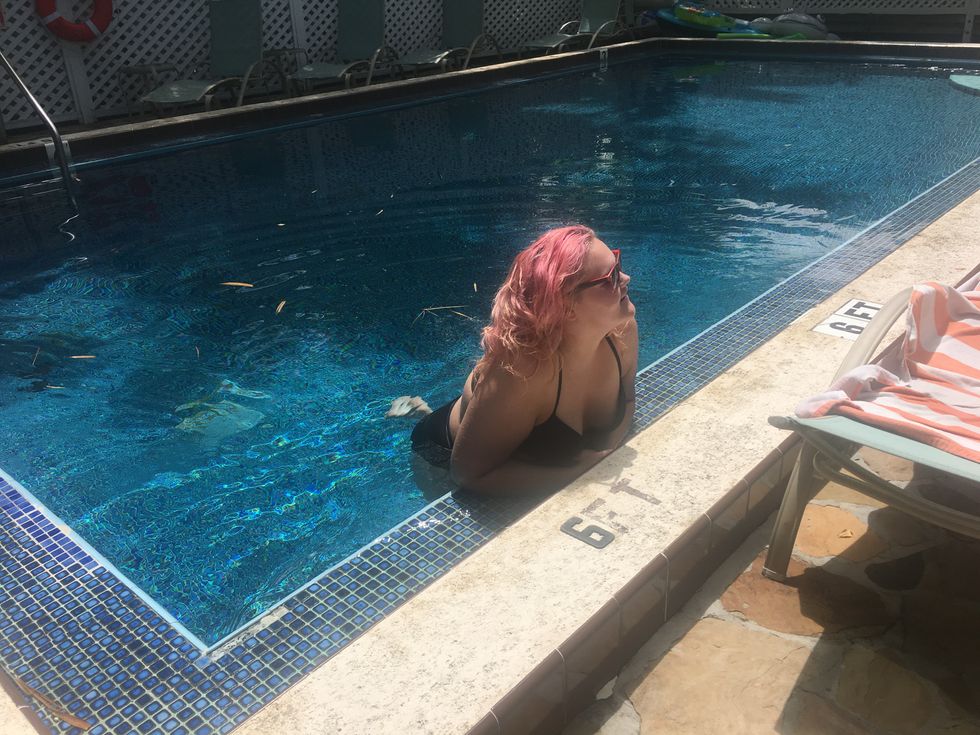Trigger Warning: This article mentions sexual assault and Post Traumatic Stress Disorder. To seek help, please call the 24 hour sexual assault hotline at 1-800-656-4673.
I am not telling my story for revenge, nor for pity. I am telling my story because I deserve to heal.
I write this story in retrospect. A year has passed since I was sexually and physically assaulted. A year of confusion, self-discovery, relapse, recovery, and everything in between.
My rape has less to do with my rapist and everything to do with my friends.
Originally, I planned on disclosing the horrific and traumatizing details of that night. I realize now that I owe no one that story. I refuse to give that vile monster any more credit or recognition than he deserves.
The real perpetrators of this story were the bystanders.
I was a freshman. College was supposed to be a new start for me, away from everything I let define me in my hometown. That school year turned into the opposite. Despite finding my niche and some good friends, the rug was torn out from under me just as fast as it had settled there.
My freshman year was a year of trial and error, and I was eager to conclude the semester and head home for the summer. A week before finals, I attended an annual end-of-year party with some friends. He was an acquaintance. I had never spoken to him before. He violated me in more ways than one.
Initially, I did what many people do after experiencing assault – I brushed it off. I convinced myself it was just a lousy hookup and nothing more.
Seeing his face again convinced me otherwise. A month later, I was at a friend’s party. He greeted everyone else and treated me like thin air. Like he could walk right through me. Like I meant nothing.
The pit in my stomach that formed after seeing his face encouraged me to speak up. I was surrounded by my friends. I thought I would be safe in sharing what happened to me. I thought I would be met with support.
“He raped me. He assaulted me.”
My friends averted their eyes and carried on the conversation as if I hadn’t spoken a word.
It took every ounce of courage in me to do this. I was shocked that I was met with the same apathy that a rapist had shown me.
After a whole summer of watching my friends associate with someone who had taken so much from me, I began to change. Anger was boiling up inside of me. I was diagnosed with Post Traumatic Stress Disorder, due to not only the unspeakable things he said and did to me but for the way my friends brushed me off just as easily as he did.
A new school year began. Focused on bettering myself this time around, it relieved me when I received word that he would no longer be at the university.
I was sorely mistaken when I saw him at every single social function I went to.
He would lurk around the corners, watching women dancing, with the same sinister look in his eyes that I remembered so vividly.
The first party I saw him at, I threw my drink down, stormed off, and cried myself to sleep.
The second party I saw him at, I was fed up. Someone who was there the night of the assault was speaking with him. Someone I considered a friend. I pulled them aside.
“You know he raped me that night, right?”
“That is not okay.” A shake of the head. A disdained sigh. They walked away.
Apathy. Enabling. Invalidation.
For a group of people that had prided themselves so greatly on creating “Safe Spaces”, being feminists, and being part of the #MeToo movement, they were certainly a selectively supportive group.
They dubbed themselves activists for the external gratification they’d receive. When it came to standing up to a sexual abuser they called a friend, they suddenly fell silent.
More than being angry, I was hurt. Hurt that no one stood up for me. Hurt that everyone carried on as if nothing had happened. As if my story wasn’t valid. As if my lifetime of trauma wasn’t important enough to do something about.
That was reason enough for me to want to change my major. That was reason enough for me to fall out of love with something that I used to be so passionate about. And now, a year later with a newfound voice, this is reason enough for me to risk the judgment coming my way and share my story on a public platform.
My only hope is that the people I once called my friends will read this. That you won’t allow this to happen to another person ever again.
But, you will.
You will continue to grant opportunities to these abusive and dangerous men, you will continue to befriend them, you will continue to put them on pedestals, even if that means stepping on women like me on the way up. You will continue.
I’m healing. I found a new passion. I found new friends. I found people that genuinely care for me, that will not tolerate sexual abuse, and that will stand up for me. Most importantly, I found myself.
I’m here. I remember. I won’t forget, either.



















